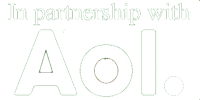DMOZ has a rich tradition of editors using various means of automation to conduct editing tasks. Editor-produced tools in many forms can make editing more efficient and fun by automating repetitive tasks or finding needles in the haystack of DMOZ data.
Through the years, as both browser technology and DMOZ infrastructure have progressed through many changes, means of automated editing have evolved as well. Examples include stand-alone tools run on an editor's own computer, tools that run as traditional web-based applications, and browser enhancements such as userscripts. While earlier tools interacted with the DMOZ data through the same directory pages and editing forms as editors, or with data made available in bulk through the RDF, recent versions of the software have included an API that allows more efficient retrieval of and interaction with directory data.
Whether developing editors make their tools available to all editors, or use them just for enhancing their own productivity, automation can make editing more rewarding when the tools are used with care. However, they also carry a greater risk of doing damage to the directory data. For this reason, any new editor tool or script for performing edits automatically (i.e. where the editor does not manually verify each edit to be performed) must be proposed and discussed in the forums, before it is put to use. This applies both to editor tools made available to the editor community, and to automated operations undertaken by a single editor.
To facilitate discussion and keep an easily retrievable record of automated tool discussions, these discussions should take place in the Editor-Produced Tools forum. When you are contemplating carrying out a task in automated fashion, start a thread in this forum titled "Automated edits: <editorname> - <description>", for example:
Automated edits: robozilla - unreviewing listings with http errorsAfter starting the thread, allow other editors to ask questions or comment on your proposal. Wait at least five days before undertaking the proposed action – assuming that it does not meet with opposition in the forum. Do not proceed with the automated editing task until you have a consensus among all who have commented that doing so is advisable. If your proposal meets opposition, you should modify it to alleviate editor concerns. If you have the support of most but not all of the editors who have commented, you may appeal to the DMOZ admins for a binding decision.
If you receive consensus and proceed with the project, be sure to document its outcome in the discussion thread. For a single project, state how it was completed; for a new editor tool, either describe the tool in the discussion thread, or provide a link to a new thread announcing the tool.
Unwanted side effects of automated edits are not the only concern with editor tools. There is also the risk of exposing potentially confidential information to the public or to editors who would not normally have access to this information. Tool creators should carefully manage access to the editor tools they share with the community, by using established means of authentication such as ODP::Passport or the native DMOZ authentication method available to editors with an API devid. They should ensure that both editing functions and access to information are restricted according to the user's editor status and editing privileges.
